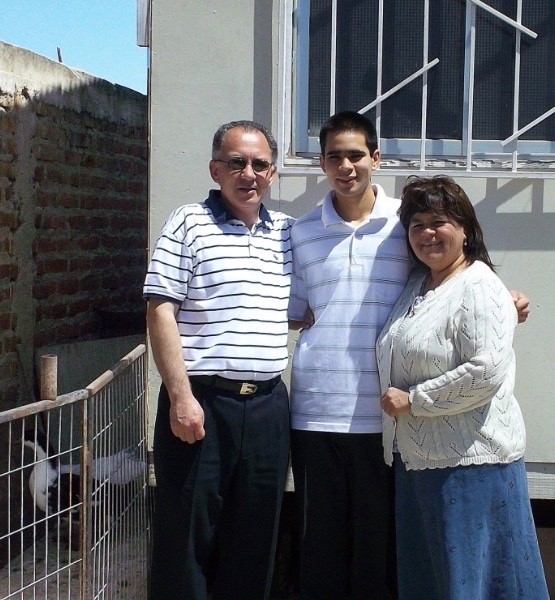Jorge is a young single adult from Valparaiso, Chile where he lives with his parents and siblings. He’s just like any young adult you would find in other areas of the world; he loves traveling, swimming, table tennis, singing–and even bird watching. But he has also learned first hand why “the family is central to the Creator’s plan” (Paragraph 1, The Family Proclamation). Through challenging experiences in his life, he has been able to find out something important about himself—and the proclamation—in the process.
I think the first time I became aware of the proclamation on the family was when I was a kid during family home evening. I was raised on these words guiding us a lot as a family. It has helped me to have a good family environment and unity, and to be able to know how to have a happy family in my future. By having an eternal family perspective, I can focus more on the most important things. We have had moments where there have been differences of opinions, and that caused us to distance ourselves as a family, despite living in the same house. After mediating, we all realized that we had put aside the important things to be together, like reading the scriptures, family home evenings … but when we did these things again as a family, everything improved in my home. I can share the experience of how we have been happier as a family through my social networks. I love the promise that we are eternal beings and that we can continue to be if we are faithful children of God, that gives me hope in this life.
I once had the opportunity to help some classmates who did not understand the contents of our courses by supporting them and teaching them some specific techniques. I hadn’t helped them for very long before they expected me to help them during the tests too. This was a stressful situation in my life, I was upset they demanded that of me. I was angry. I brought my frustration and anger home. There were also moments within my family where there have been differences of opinions, and that caused us to distance ourselves as a family, despite living in the same house. I was angry then too. While anger is one of the strongest emotions human’s face, it’s a choice. I knew that I could not face all these challenges alone, so I asked the Lord for help.
The prophet Brigham Young said, “Pray as though everything depended on the Lord and work as though everything depended on you.” I know when I practice this principle, I help myself and those around me. Since the family is central to all the things the Father has for us, I needed some self-control. During this same time, my family and I (again!) realized that we had put aside the important things we should do together, like reading the scriptures, and family home evenings. When we did these things again as a family, everything improved in my home. And because things improved in my home I could more easily improve things with my classmates. I could show them kindness without losing my integrity because God increased my capacity.
Why did I chose to share these specific experiences? It’s because I have learned that by having an eternal family perspective, I can focus more on the most important things. I love the promise that we are eternal beings and that we can continue to be if we are faithful children of God, that gives me hope in this life.
Jorge’s story is something we can all relate to. His point about having an “eternal family perspective” is reflected in social science, too. Research has consistently found that religious faith and family relationships are interrelated in positive and interesting ways. In the article “Religion and the Daily Lives of LDS Families: An Ecological Perspective” BYU professors explored in detail how religion and family religious rituals affect the day-to-day activities of individual and family life. After doing a qualitative analysis of interviews with highly religious parents and children in 67 families that belong to The Church of Jesus Christ of Latter-Day Saints. Findings suggest that for this sample, religion was more than an external influence; it was viewed as an integral part of one’s individual, familial, structural, and social systems.
These researchers also noted that “empirical studies have also reported positive links between religion and parent–child relationships. Research has consistently suggested that religiosity is tied to greater warmth in family relationships, as well as more skilled parenting and less co-parenting conflict. Greater religiousness among parents has also been directly linked to fewer problem behaviors in their children.” (link)
Although we know none of the families in this study would consider themselves perfect, the family is the best place for people to learn and grow together. Of this, President Henry B. Eyring taught:
“Though earthly families are far from perfect, they give God’s children the best chance to be welcomed to the world with the only love on earth that comes close to what we felt in heaven—parental love. Families are also the best way to preserve and pass on moral virtues and true principles that are most likely to lead us back to God’s presence.”
President Henry B. Eyring
“Gathering the Family of God,” Ensign, May 2017, 20.
For more research on the family, visit each of the paragraph pages to see what other sociologists and researchers have found about why the family is so central to everything we do in this life (and the next).

